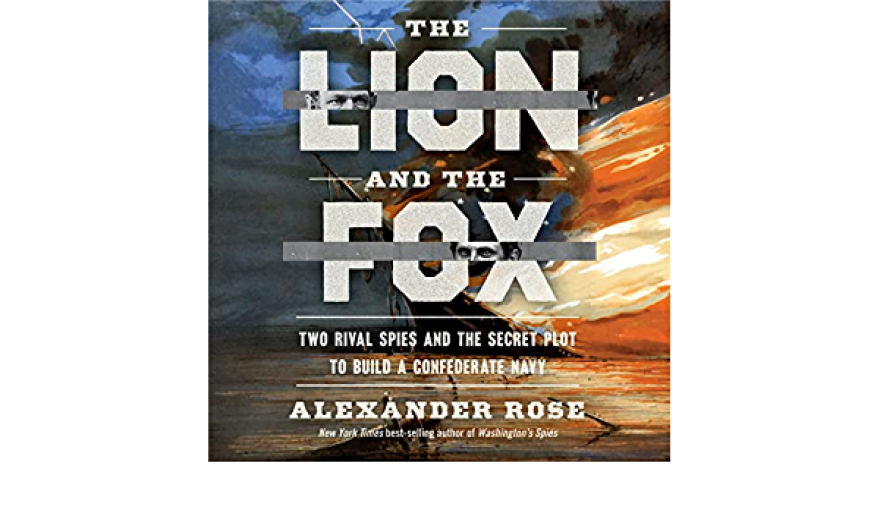You might think that nothing new could be said about the American Civil War. This turns out to be not altogether true. Rose has organized fascinating new information and has an enviably smooth prose style. Early in the war, Lincoln called for a naval blockade and the Confederacy at first scoffed. After all, there were 3,549 miles of Confederate coastline. Yes, but the Union did not need to blockade beaches and swamps and rocky coasts, only seven ports, from Norfolk, and Wilmington to Savannah, Charleston and New Orleans, Mobile and Galveston. The most startling piece of data, however, concerned the Confederate Navy. Total number of ships: one.
The South needed to obtain warships abroad, mainly in England, and pay for them with cotton. At first, this was actual cotton, then as time passed the collateral became cotton futures, promises of cotton that would be brought out by blockade runners who had brought in goods, often luxury goods that rich planters and their wives still craved, and then loaded up. It was only near the end of the war that the Confederacy “nationalized” and controlled blockade running. The British mills truly needed that cotton, mountains of it. One-fifth of the British people were dependent in some way on the cotton industry, and Southerners hoped if the blockade could be proven ineffective, and if the South seemed to be winning, perhaps the Brits would recognize the Confederacy or, as many wished, actually take her side. The English had fought and lost to the U.S. in 1776 and in 1812, so not everyone was on board with this idea, but some were. At first, the British felt the war was for Southern independence, but with the Emancipation Proclamation, that changed to a war to end slavery and British sympathy dwindled.
To create a navy, the Confederacy sent a shrewd, in fact, slimy operator to Liverpool. This fox was James Bulloch. Under orders from Jefferson Davis, he would bribe and court the shipmakers, pushing the limits of the arcane and complicated British laws concerning building ships for foreign powers. He was fairly successful. Bulloch managed to get several ships built, new, fast, steam-powered, including the one that would be renamed the “Alabama.” Under Captain Raphael Semmes, that ship would wreak havoc in the Atlantic. Bulloch was a super spy—clever and resourceful. He bought and sent home, clandestinely, loads of arms and even managed to plant a Confederate mole in the British foreign office. His adversary, the American consul in Liverpool, Thomas Dudley, was determined to prevent any of this from happening. Dudley was as righteous as Bulloch was dubious. A Quaker from New Jersey, Dudley was ferociously anti-slavery and anti-Confederacy. He reported to Charles Henry Adams, the American Minister to Great Britain, and together, with counter-spies and in law courts, they parried Bulloch and his schemes. A good deal of this takes place in Liverpool, which Rose describes as the most depraved port in the western world. Rose entertainingly lays out this four-year cat and mouse game. Spoiler alert: the Union wins.



